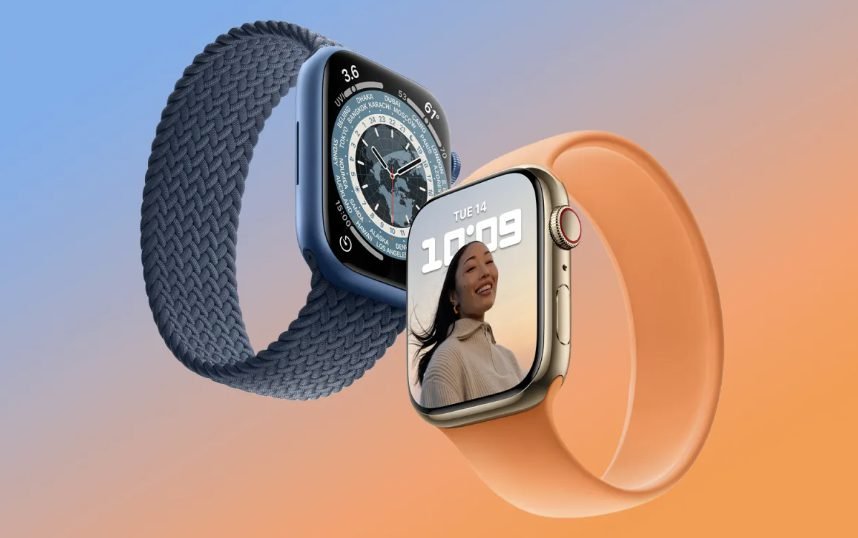Your guide: Is Cellular Worth It on Apple Watch?
Since its first release, the Apple Watch has evolved a ton! One of the most important developments is the inclusion of cellular connectivity. For many consumers, the option to untether the watch from your iPhone and yet remain connected has changed their lives.
But many have wondered, “Is Cellular Worth It on Apple Watch?” If you’ve wondered this too, don’t worry. You’re not alone. Today, we’ll cover this more. Given the extra expense and possible effect on battery life, is it worth it?
Keep reading to find out more.
Also read: BRICS Currency Threatens US Dollar Dominance in Oil & Global Banking
Is Cellular Worth It on Apple Watch?
For many, the simple answer is yes. You can leave your iPhone at home and remain linked using a cellular connection. Fitness enthusiasts who wish to track their exercises, stream music, and get critical alerts without carrying their smartphone may especially benefit from this.
Runners, for instance, can take advantage of the ease of making and receiving calls, messaging, and even Siri access without stopping their activity.
Keep track of the family
Setting up an Apple Watch for a family member without an iPhone also depends on cellular capability. Apple’s Family Setup tool lets you set up an Apple Watch for an older relative or child so they may remain in touch and use texting and emergency calls among other important capabilities.
The ability of a cellular Apple Watch to make and receive phone calls straight from the gadget is another obvious advantage. When your iPhone is not easily available, as occurs when running errands or working out, this can be helpful. The cellular connection also guarantees that, even if your iPhone is left behind or out of range, you can keep critical communications.
The Drawbacks of Apple Watch Cellular
Although the Apple Watch’s cellular capability has clear advantages, users should also take into account some negatives. The effect on battery life is one of the main worries. The cellular connection demands for more power, hence heavy use of functions like streaming music or making frequent calls will seriously drain the battery of the watch. This could cause more frequent charging, thereby possibly upsetting the flawless experience consumers of an Apple Watch expect.
One more consideration is the extra expense connected with a cell Apple Watch. Usually costing $100/£110 more than their Wi-Fi-only equivalents, the cellular-enabled variants Users will also have to pay their phone company a monthly charge for the data plan, which over time might mount up. Some customers may not find the additional cost justified given the supposed advantages of cellular access.
Furthermore noteworthy is the fact that not everyone may require the cellular capacity. As long as the Apple Watch is coupled with an iPhone or linked to a Wi-Fi network, many of its basic functions—including fitness monitoring, Apple Pay, and Siri—can be utilized without a mobile connection.
The cellular option could not offer enough added value to justify the additional expense and possible battery depletion for consumers who mostly use their Apple Watch for these fundamental purposes.
Considerations for Selecting a Cellular Apple Watch
Deciding whether to get a cellular-enabled Apple Watch requires careful assessment of your particular requirements and usage behavior. Think through the following:
Movement and Way of Life
A cellular Apple Watch might be a game-changer if you lead a busy life and regularly find yourself far from your iPhone. For individuals who value mobility, outdoor enthusiasts, or fitness, the opportunity to remain connected and access basic capabilities without your smartphone might be priceless.
Also read: BRICS Could Induct 10 New Countries After 2024 Summit
Costs of data and cellular coverage
Before committing to a cellular Apple Watch, find out about the coverage and data possibilities your phone operator provides. Make sure the coverage of your area is constant and that the monthly data prices meet your means.
Family Order
If you want to set up an Apple Watch for a family member without an iPhone, cellular connectivity becomes necessary to unlock the whole potential of the Family Setup feature.
Problems involving battery life
Examine your typical consumption patterns to determine whether the potential impact on battery life is within reasonable bounds. The cellular capability of your Apple Watch may not be the best fit if you spend extended periods without access to a charger.
Examining Costs and Rewards
Against the projected advantages of the cellular capabilities, compare the monthly data plan and the additional cost of the Apple Watch model enabled by cellular capacity. See if the extra expense is balanced by the conveniences and amenities.
Substitutes for Cellular Apple Watch
Users who do not need the Apple Watch’s cellular capability should give other choices some thought. Although their entry point is more reasonably priced, the Wi-Fi-only devices nevertheless give a complete range of capabilities like Siri integration, Apple Pay, and fitness tracking.
Users can also investigate using other apps and services that make use of Apple Watch’s current connection choices. Apps like Find My Friends or Life360, for instance, can offer location-sharing and emergency tools free of a cellular connection.
Conclusion
The choice to choose a cellular-enabled Apple Watch comes down to your personal tastes and requirements eventually. Although cellular technology has clear advantages—such as the ability to stay in touch without your iPhone and make direct phone calls straight from the watch—it also comes with certain negatives including the effect on battery life.
Your lifestyle, use patterns and budget will help you decide whether the Wi-Fi-only model will be sufficient or whether the cellular capability is necessary. Whatever your preference, the Apple Watch is still a strong and flexible wearable tool that can improve your daily life and output in countless different ways. Happy shopping!


